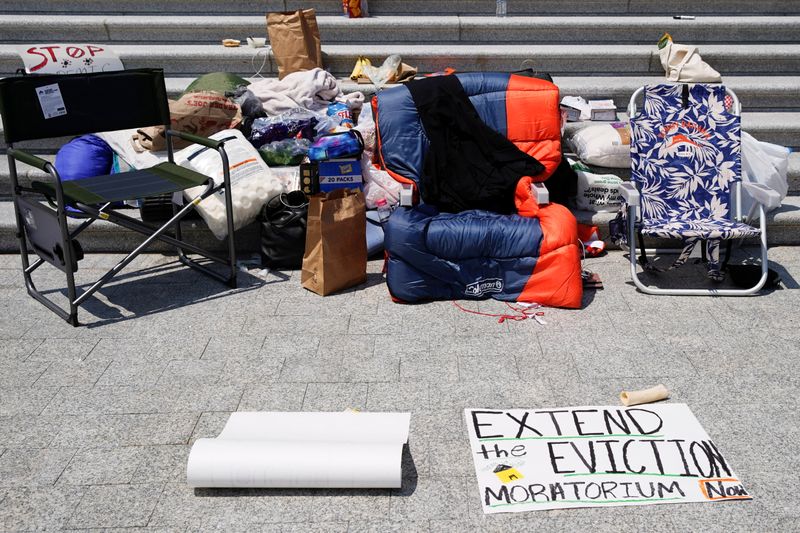By David Shepardson
WASHINGTON (Reuters) -A U.S. judge on Friday rejected a bid to block a residential eviction moratorium put in place last week by the Centers for Disease Control and Prevention (CDC), despite raising questions about the new order's legality.
The decision by U.S. District Judge Dabney Friedrich on procedural grounds is a win for the Biden administration. She said the realtor groups that sued must go to the U.S. Court of Appeals for the District of Columbia to challenge the new 60-day CDC moratorium set to expire on Oct. 3.
The National Association of Realtors, which is supporting realtor groups in Alabama and Georgia that are among those challenging the moratorium, said in a statement the groups "now plan to return in short order to the D.C. Circuit Court and then again to the Supreme Court if necessary."
The group added it is "confident in our position that this unlawful eviction ban will soon come to an end."
White House spokeswoman Jen Psaki said in a statement the administration was "pleased that the district court left the moratorium in place, though we are aware that further proceedings in this case are likely."
The administration said it continues to urge state and local governments to quickly distribute $46.5 billion in emergency rental assistance funds approved by Congress.
Under heavy political pressure, the CDC reversed course on Aug. 3 and issued a slightly narrower eviction moratorium just three days after the prior one expired. The current moratorium covers nearly 92% of U.S. counties, but that could change based on COVID-19 conditions.
More than 15 million people in 6.5 million U.S. households are currently behind on rental payments, according to a study, and collectively owe more than $20 billion to landlords.
Friedrich in May declared the CDC eviction moratorium, which was first issued in September 2020, unlawful but delayed her ruling from immediately taking effect.
In June, a divided Supreme Court agreed to let the CDC moratorium remain in effect after the agency announced it would allow the ban to expire on July 31.
Supreme Court Justice Brett Kavanaugh issued a concurring opinion saying that in his view extending the CDC moratorium past July 31 would need "clear and specific congressional authorization (via new legislation)."
Before that, the appeals court had issued a ruling upholding a decision to put Friedrich's ruling on hold.
Landlord groups argued Kavanaugh's ruling meant Friedrich should immediately block the new moratorium.
Friedrich said she would have blocked the eviction order but for the appeals court ruling.
"The court’s hands are tied. The Supreme Court did not issue a controlling opinion in this case, and circuit precedent provides that the votes of dissenting justices may not be combined with that of a concurring justice to create binding law," she wrote.
The CDC declined to comment on Friday.
